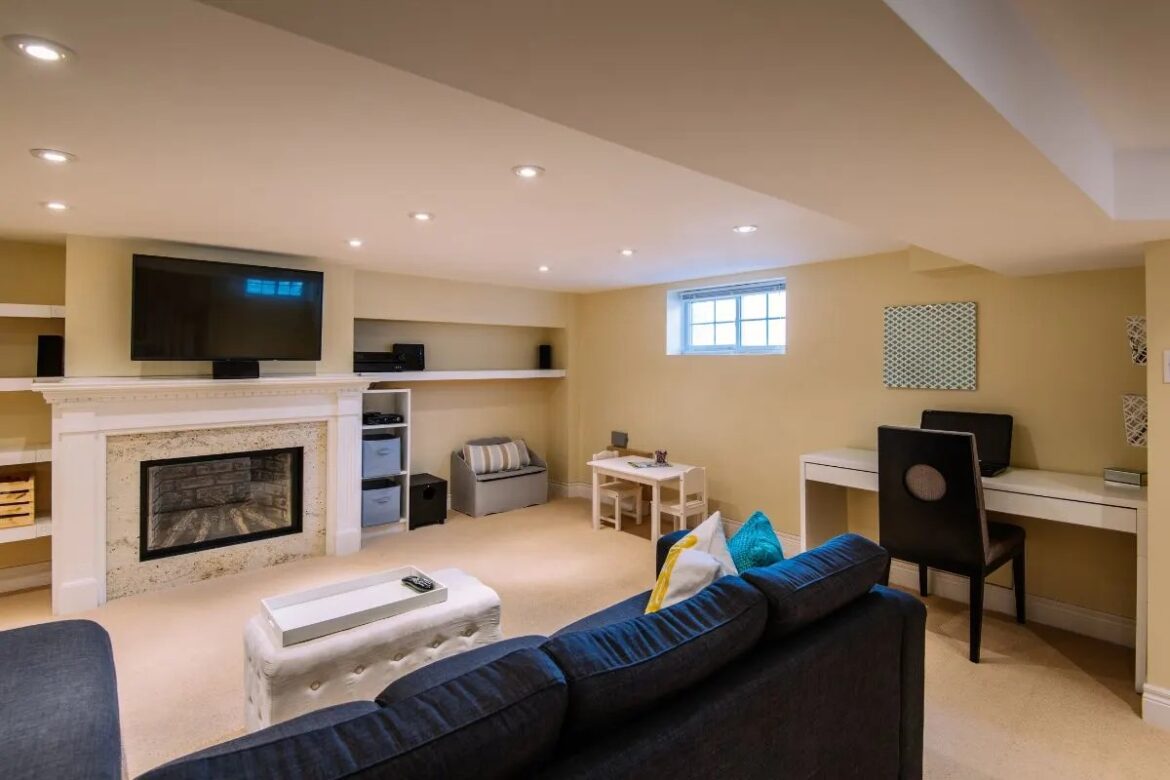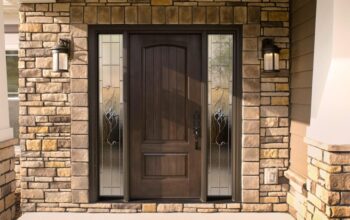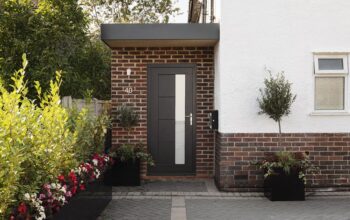When it comes to designing or renovating a home, the basement is often an overlooked space. However, with thoughtful planning and attention to detail, basements can transform from dark, underutilized areas into functional, inviting spaces that add immense value to your property. One of the most critical elements in achieving this transformation is installing proper basement windows . These small but mighty additions play a pivotal role in improving natural light, ventilation, safety, and even curb appeal. In this comprehensive guide, we’ll explore everything you need to know about basement windows—why they matter, how to choose the right ones, and tips for installation and maintenance.
Why Basement Windows Are Essential
1. Natural Light and Brightness
One of the biggest challenges homeowners face with basements is the lack of natural light. Without sufficient illumination, these spaces can feel cramped, gloomy, and unwelcoming. Basement windows and källarfönster are an excellent solution to this problem. By allowing sunlight to filter into the lower levels of your home, they create a brighter, more cheerful atmosphere. Natural light not only enhances the aesthetic appeal of your basement but also has psychological benefits, boosting mood and energy levels.
2. Improved Ventilation
Proper airflow is crucial for maintaining air quality in any part of your home, including the basement. Stale, stagnant air trapped in poorly ventilated basements can lead to issues like mold growth, mildew, and unpleasant odors. Installing basement windows allows fresh air to circulate, reducing humidity levels and creating a healthier living environment. This is especially important if you plan to use your basement as a bedroom, office, or recreational area.
3. Emergency Egress
Safety should always be a top priority when designing or remodeling a basement. Many building codes require basements to have at least one egress window—a type of window large enough to serve as an emergency exit. These windows provide a quick escape route in case of fire or other emergencies, ensuring the safety of occupants. Additionally, egress windows make your basement compliant with local regulations, which can be beneficial if you’re considering selling your home in the future.
4. Enhanced Curb Appeal
While basements are located below ground level, their windows still contribute significantly to the overall appearance of your home. Well-designed basement windows can complement your home’s architectural style and elevate its curb appeal. For instance, decorative glass inserts or stylish grilles can add visual interest, while sleek, modern designs can give your home a contemporary look.
5. Increased Property Value
A finished basement with high-quality windows can dramatically increase your home’s market value. Potential buyers appreciate the added functionality and livable square footage that a well-lit, ventilated basement offers. Whether it’s used as a guest suite, entertainment room, or home gym, a basement with proper windows becomes a desirable feature that sets your property apart from others on the market.
Types of Basement Windows
Choosing the right type of basement window depends on several factors, including your budget, design preferences, and specific needs. Here are some popular options:
1. Hopper Windows
Hopper windows are hinged at the bottom and open inward, making them ideal for basements where space is limited. They provide excellent ventilation and are easy to operate. Their compact size makes them perfect for smaller basement openings.
2. Awning Windows
Similar to hopper windows, awning windows are hinged at the top and open outward. They offer great protection against rain since they allow airflow even during light showers. Awning windows are particularly useful in basements prone to moisture issues.
3. Sliding Windows
Sliding windows glide horizontally along a track, offering unobstructed views and ample ventilation. They are a practical choice for larger basement spaces and work well in areas with minimal exterior obstructions.
4. Casement Windows
Casement windows are hinged on one side and swing outward like a door. They provide maximum ventilation and are highly energy-efficient due to their tight seal when closed. Casement windows are an excellent option for basements that double as living spaces.
5. Egress Windows
As mentioned earlier, egress windows are designed to meet safety requirements. They are typically larger than standard basement windows and must adhere to specific size guidelines set by local building codes. Egress windows are essential for habitable basement spaces.
6. Glass Block Windows
For homeowners seeking privacy without sacrificing natural light, glass block windows are a fantastic choice. These windows consist of individual blocks of glass fused together, creating a unique textured appearance. While they don’t open, they are incredibly durable and resistant to break-ins.
Factors to Consider When Choosing Basement Windows
Selecting the best basement windows involves careful consideration of various factors. Keep the following points in mind to ensure you make the right decision:
1. Size and Placement
The size and placement of your basement windows will depend on the intended use of the space. Larger windows are suitable for living areas, while smaller ones may suffice for utility rooms. Ensure the windows are positioned to maximize natural light and provide adequate ventilation.
2. Energy Efficiency
Look for windows with double or triple glazing, low-emissivity (Low-E) coatings, and insulated frames. These features help reduce heat loss during colder months and keep your basement comfortable year-round.
3. Durability and Security
Basement windows are susceptible to moisture, pests, and potential intrusions. Opt for materials like vinyl, fiberglass, or aluminum, which are known for their durability and resistance to environmental damage. Additionally, consider adding locks or security bars for enhanced protection.
4. Budget
Window costs vary widely based on material, style, and customization options. Set a realistic budget before shopping and prioritize features that align with your needs. Remember that investing in high-quality windows now can save you money on repairs and replacements down the line.
5. Local Building Codes
Before purchasing or installing basement windows, familiarize yourself with local building codes and regulations. Some jurisdictions have strict guidelines regarding window size, placement, and egress requirements, particularly for habitable spaces.
Tips for Installing Basement Windows
Proper installation is key to ensuring your basement windows function effectively and last for years to come. Follow these tips for a successful installation process:
1. Hire a Professional
Unless you have extensive DIY experience, it’s best to hire a professional contractor for basement window installation. Professionals have the expertise and tools needed to handle excavation, framing, and waterproofing, ensuring the job is done correctly.
2. Ensure Proper Waterproofing
Basement windows are vulnerable to water infiltration, so proper waterproofing is essential. Use high-quality sealants around the window frame and install a window well with a drain system to prevent water pooling.
3. Add Window Wells
Window wells are shallow pits dug outside the basement window to allow light to enter and provide access for egress. Line the wells with gravel or install covers to prevent debris accumulation and improve safety.
4. Incorporate Landscaping
Strategically placed landscaping can enhance the appearance of your basement windows while providing additional drainage. Plant shrubs or flowers near the window wells to create a visually appealing transition between your home and yard.
Maintenance Tips for Basement Windows
To extend the lifespan of your basement windows and maintain their performance, regular upkeep is necessary. Here are some maintenance tips:
- Clean Regularly: Remove dirt, dust, and grime from the glass and frames using a mild cleaner and soft cloth.
- Inspect Seals: Check the seals and weatherstripping annually for signs of wear and tear. Replace damaged components promptly to prevent drafts and leaks.
- Clear Debris: Keep window wells free of leaves, twigs, and other debris to avoid clogging drains and causing water damage.
- Lubricate Moving Parts: Apply lubricant to hinges, tracks, and locks to ensure smooth operation.
Conclusion
Basement windows are much more than mere openings in your foundation—they are gateways to improved aesthetics, functionality, and safety. From flooding your basement with natural light to providing emergency exits and increasing property value, these windows offer numerous advantages that no homeowner should overlook. By carefully selecting the right type of window, adhering to local building codes, and prioritizing professional installation and maintenance, you can unlock the full potential of your basement space.
Whether you’re renovating an existing basement or building a new home, investing in high-quality basement windows is a smart decision that pays dividends in comfort, convenience, and long-term value. So, take the time to explore your options, consult with experts, and transform your basement into a vibrant, welcoming extension of your home




